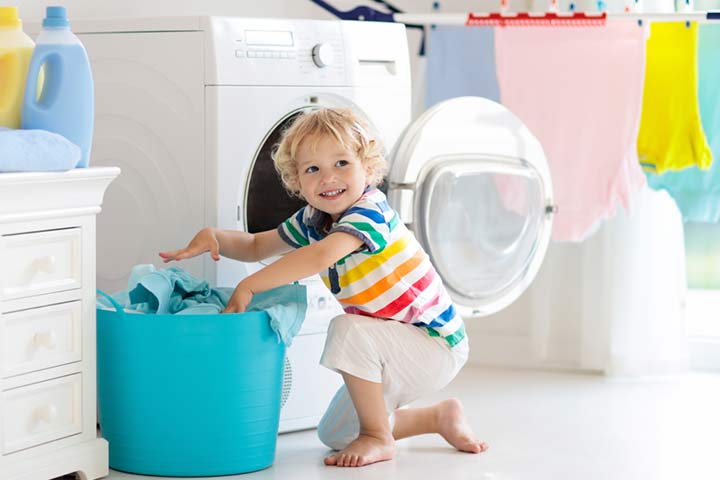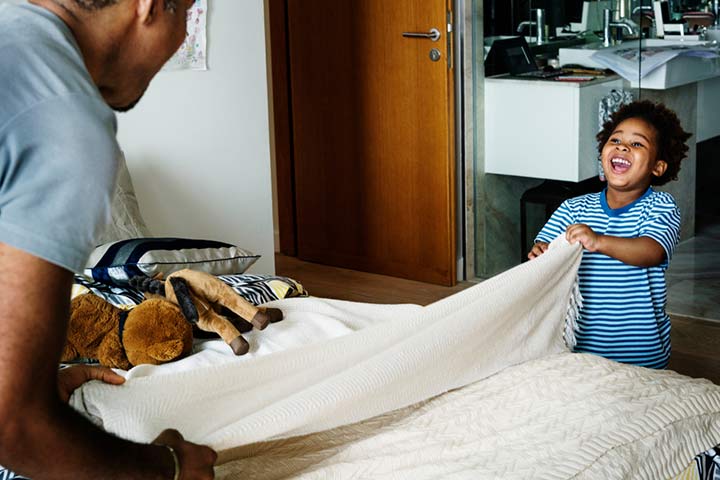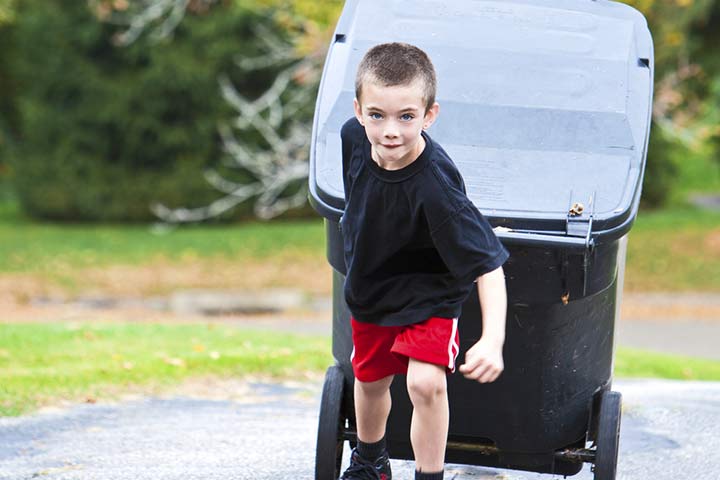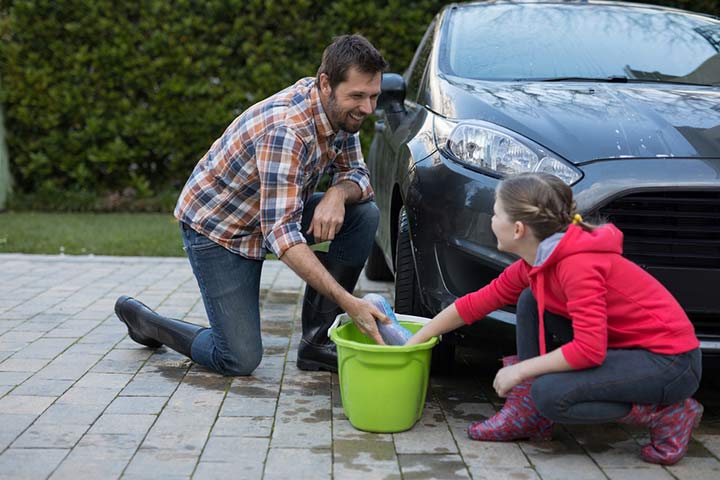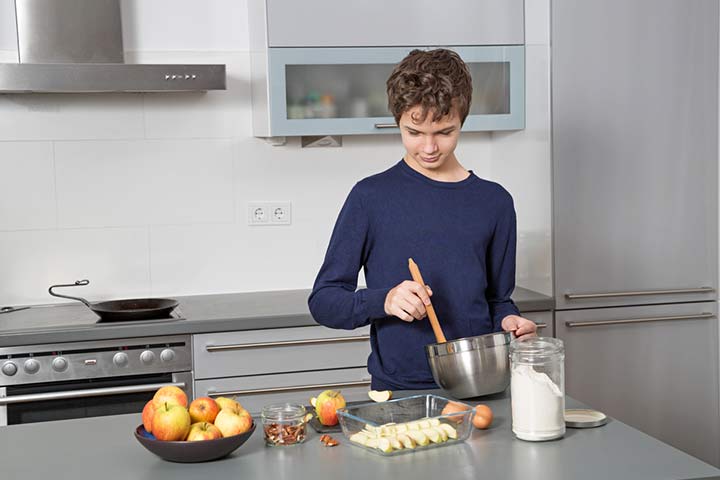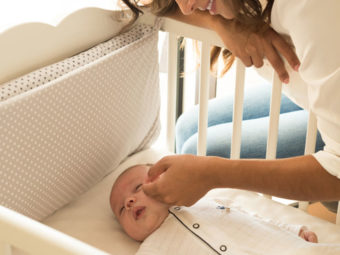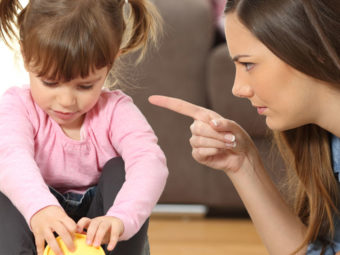
Have you ever wondered if it is important for your children to learn how to do household chores? Teaching them the importance of doing small chores that are age-appropriate inculcates responsibility and accountability from a tender age. Assigning tasks to kids also makes them feel important because they are involved in daily household activities. It builds morale and brings them a sense of belonging. But how do you know what chores your kids can do? More importantly, how do you know when your kids can start? What is the right age for your children to begin household chores? These questions might be lingering in all your minds. Therefore, here are a few age-appropriate chores for your kids that will enable responsibility, mindfulness, and benefit:
- 2-5 Years
Image: Shutterstock
You might think your baby is too young to start helping around the house. But it’s good to start young and in small steps. As young as 2 years old, your kids can begin to understand the sequence and order of tasks. It could be as simple as taking off their shoes and placing them on a shoe rack. Similarly, you could show your kid the laundry basket and tell them to drop their dirty clothes in it once they take them off.
Breaking down simple tasks in steps and sequence helps them break down big tasks into small achievable steps. Besides, every task that your child learns at a young age will benefit as they grow older. At 2 to 5 years, you could teach them to put back their toys and books in the respective places after using them, make their beds, and clean their plates out before putting them in the sink.
- 6-7 Years
Image: Shutterstock
Your child is older and can understand what it means to pitch in around the house. They could set the table, assist you with cooking, make grocery lists, and take care of the family pet. Your kid will learn the importance of teamwork and lending a helping hand. Taking care of a pet not only makes them responsible but also makes them feel included and important. It helps build strong family bonds that will last even as they grow up. Another age-appropriate chore is to water the plants.
- 8-9 Years
Image: Shutterstock
As kids grow older, it’s good for them to take care of their belongings. They start to realize that everything has a designated place in the house. The plates go in the plate cabinet, the books in the bookshelf, and the shoes in the shoe rack. Kids learn that it’s important to tidy up consistently after using things, and they build a habit for it. You could also teach them to fold laundry, put away cutlery, and organize their bedroom and study.
- 10-11 Years
Image: Shutterstock
Your kid is ready for their big kid pants! You could introduce them to time-sensitive chores like packing breakfast before school. Your kid will have to plan ahead of time to get it right, improving their problem solving and time management skills. You kid can be introduced to more important tasks like vacuuming, getting mail, emptying the trash can, and taking out the trash.
- 12-15 Years
Image: Shutterstock
青少年可能会非常棘手,但如果处理正确的way, assigning teenagers with tasks can help boost their morale, self-confidence, and capabilities. Teach them the importance of self-discipline and introduce them to tasks like lawn mowing, ironing, car washing, laundry, changing their sheets, cleaning, and yard maintenance. Give them the chores but provide them with a free hand to do it their way.
- 16+ Years
Image: Shutterstock
When kids reach adolescence, it’s good to start treating them as adults and ensure they do everything an adult should be doing. Money management is an essential skill that a kid needs to learn. They also should start cooking, change light bulbs, give their cars for service, and help and tutor other kids.
It’s vital to instill responsibility in your kids so that they learn to become self-sufficient adults. However, you should never pawn off all your chores on your kids and make them feel burdened with the responsibility. Instead, allow them to learn by helping you and gradually increase their accountability. Was this article helpful? Comment below and let us know.

